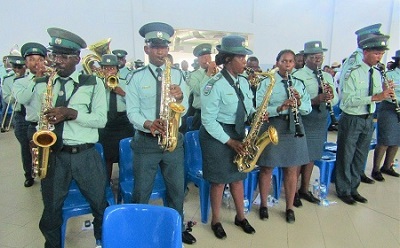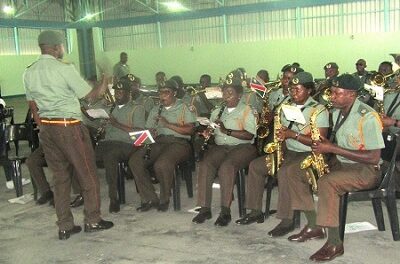
The International Jazz Day (IJD) will be celebrated on 30 April under the theme “Diversity bringing us together”.
Namibia’s history of jazz dates back to the 20th century and has been appreciated as a form of expression that brings communities together.
Over the years, jazz music has been celebrated through IJD, annual festivals, and radio programs dedicated to jazz. For this year’s celebrations, the stage will be given to Thetardius Brass Band and Sisonke Xonti.
Thetardius Music Academy, was established 7 years ago to provide music classes in various genres for young and old musicians in Namibia, with a focus on music education in promoting the country’s musical culture.
Sisonke Xonti, is the 2020 Standard Bank Young Artist Award winner for Jazz. The young and increasingly well-known saxophonist from South Africa, took up music as a full-time career six years ago, having studied towards a degree in law throughout his university career.
While he only took the leap into music as a full-time profession a few years ago, music has been a part of Xonti’s life since childhood. It was at the age of 13 that he discovered the saxophone, and he soon fell in love with jazz.
The event is co-sponsored by the Franco Namibian Cultural Centre (FNCC) and Rand Merchant Bank (RMB), and organized in partnership with UNESCO, National Theatre of Namibia (NTN), College of the Arts (COTA), Desert RADIO and Energy100 FM.
IJD was proclaimed during the UNESCO General Conference of November 2011. The day is intended to raise awareness in the international community of the virtues of jazz as an educational tool and a force for peace, unity, dialogue and enhanced cooperation among people.
Many governments, civil society organizations, educational institutions and private citizens engaged in the promotion of jazz music embrace the opportunity to foster greater appreciation not only for the music but also for the contribution it can make to building more inclusive societies.
Some of the objectives of IJD are to celebrate Namibian and regional jazz artists; promote the history of Namibian jazz music, through public education initiatives and public engagements; promote intellectual co-operation and mutual understanding of peoples; contribute to peace and security in the world by promoting collaboration amongst nations and peoples; and highlight the extraordinary heritage and history of jazz, and its importance as both an historical and a living treasure; and provide enriching, entertaining, and educational cultural programming.
The International Jazz Day brings together communities, schools, artists, historians, academics, and jazz enthusiasts all over the world to celebrate and learn about jazz and its roots, future and impact.
The day also raises awareness of the need for intercultural dialogue and mutual understanding, and reinforce international cooperation and communication.
Each year on April 30, this international art form is recognized for promoting peace, dialogue among cultures, diversity, and respect for human rights and human dignity; eradicating discrimination; promoting freedom of expression; fostering gender equality; and reinforcing the role of youth in enacting social change.
The event takes place at the FNCC in Windhoek on Saturday, 30 April, and entry to the show will be free.
In the photo: South African jazz artist Sisonke Xonti who will perform in Windhoek (photo by sowetanlive.co.za).






